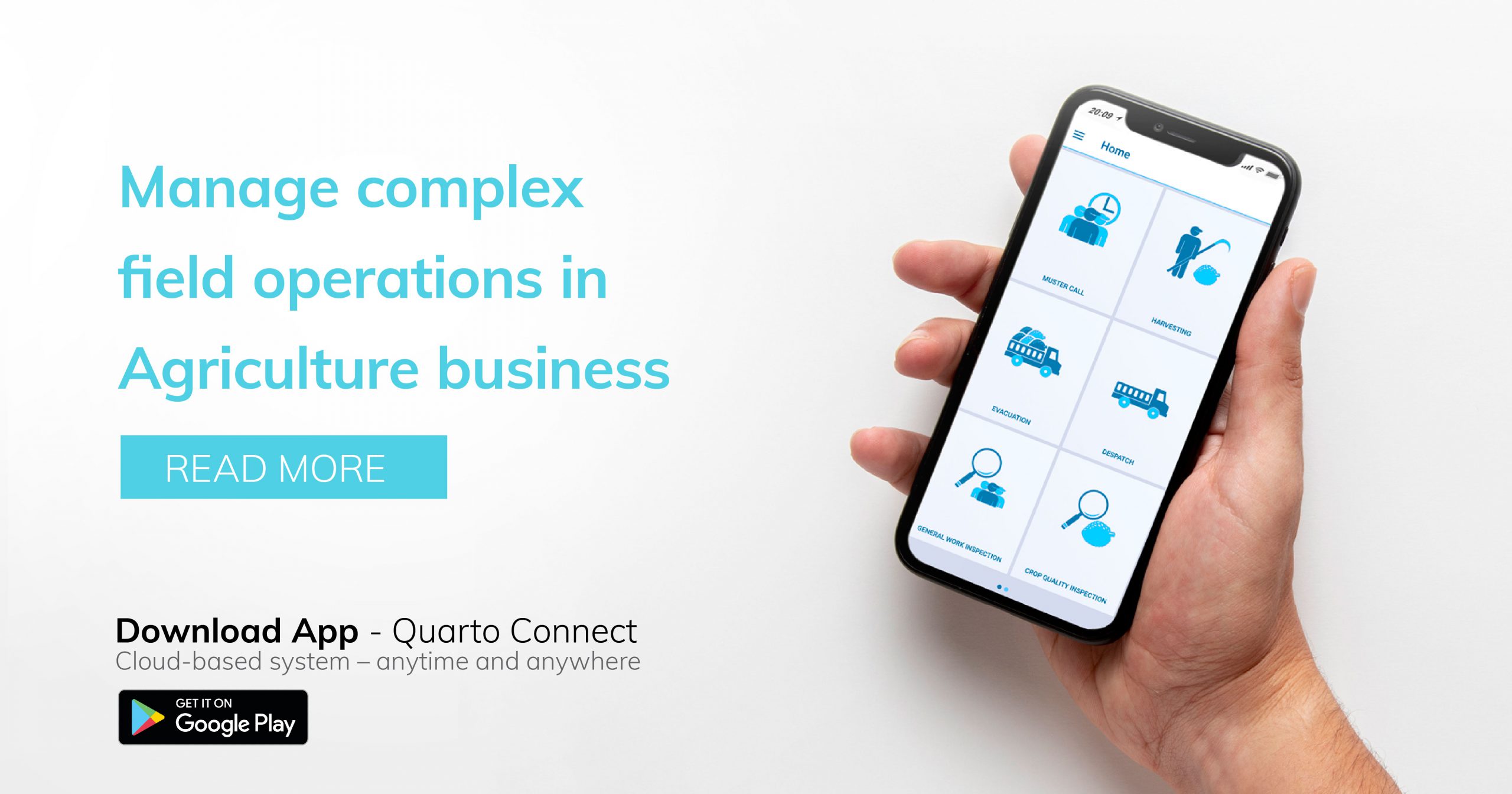Challenges In Managing Plantations

Posted on |
A palm oil plantation is a complex operation with many challenges to manage. Today, we explore the basics of managing an oil palm estate from the perspective of field supervisors. At the same time, we’ll explore how can digital agriculture help leaders manage moving variables of complex field operations from the convenience of a smartphone app, powered by cloud computing?
Field work management
Estate operations are highly labour-intensive. From seed planting, there are many steps to take before the fruits reach maturity and are ready for harvest. A typical oil palm estate routine includes seed plantings, nursery transfers, watering, manuring, and spraying of fertilizers and pesticides. When the crop is mature, workers harvest the palm fruits, load them onto trucks and transport them for processing at mills.
Therefore, efficient management is necessary when working with estates spanning hundreds to thousands of hectares, with just as many workers. Field supervisors need to keep track of worker attendance and assign work tasks gangs. At the same time, they also need to monitor harvests and check on crop quality.
Field supervisors would inspect plantations, then record work details into a note or logbook. However, manual data recording also presents a number of problems across the entire operational chain, as we previously explored here.
Digital solutions for challenges in estate management
Digital management solutions, such as Quarto by LintraMax are streamlining field work. Through the Quarto Connect app, field supervisors can directly perform tasks such as:
- Taking and verifying worker attendance in the field. This also supports biometric fingerprint scanning for faster recording times while reducing worker identity fraud. At the same time, this also allows productivity to be tied to each worker.
- Tagging and demarcating estates by regions with GPS coordinates. Supervisors can assign work gangs accordingly by regions. With this, supervisors can measure a worker’s performance and compare with others in the gang. As they complete and progress on their individual tasks, supervisors can record and update the app accordingly. This prevents confusion and overlaps in work assignments, and also potential wastages and crop losses, such as accidentally spraying pesticides twice, for example.
- Apart from recording harvest yield, supervisors can record harvests per worker to measure productivity. At the same time, this creates a comprehensive recording of harvesting intervals and crop grades.
- Finally, Quarto Connect allows supervisors to easily plan crop evacuations by keeping track of shipments versus backlog. More importantly, it keeps records of any weight discrepancy from between the estate to mill to ensure pilferage does not occur.
Better data recording, better strategic decisions
Quarto Connect uses any compatible smartphone or tablet for field data recording. With Internet access, the user can sync the information recorded with the main Quarto system, making it available to management quickly and easily.
Regular and accurate practice of field data recording gives an accurate picture of resource usage and operating costs. Let’s return to the example of fertilizer tracking. If there are significant discrepancies with fertilizer usage in one area, it can mean overuse and wastage.
On the other hand, significant under usage can mean fertilization duties not being carried out properly by the assigned work gang. By pinpointing such issues early on, managers can take corrective action before it affects harvest quality.
The Quarto system provides over 400 reports to managers in near real-time. Therefore, it is crucial that the supporting field data is accurate and timely. With this information, managers can strategise and budget effectively, allowing plantations to take their business to the next level.
